SURRENDER TO THE FLOW FALL 2023 25TH ANNIVERSARY ISSUE
[Courtesy of Christy Articola, one of the Phish community's most generous and gracious fans over the course of twenty-five years, and the Editor and Publisher of STTF. Do not miss user @farmose (formerly @fad_albert)'s "Horoscopes" in this STTF! -Ed.]
Here is Surrender to the Flow's Fall Tour 2023 issue! (www.gum.co/sttf80)!
It's our 25th Anniversary issue and it's hard to believe---but amazing for us to contemplate---that we have been putting this magazine out to Phish fans for two and a half decades! We are so thankful for your support and readership, and we think you're really going to love this one.
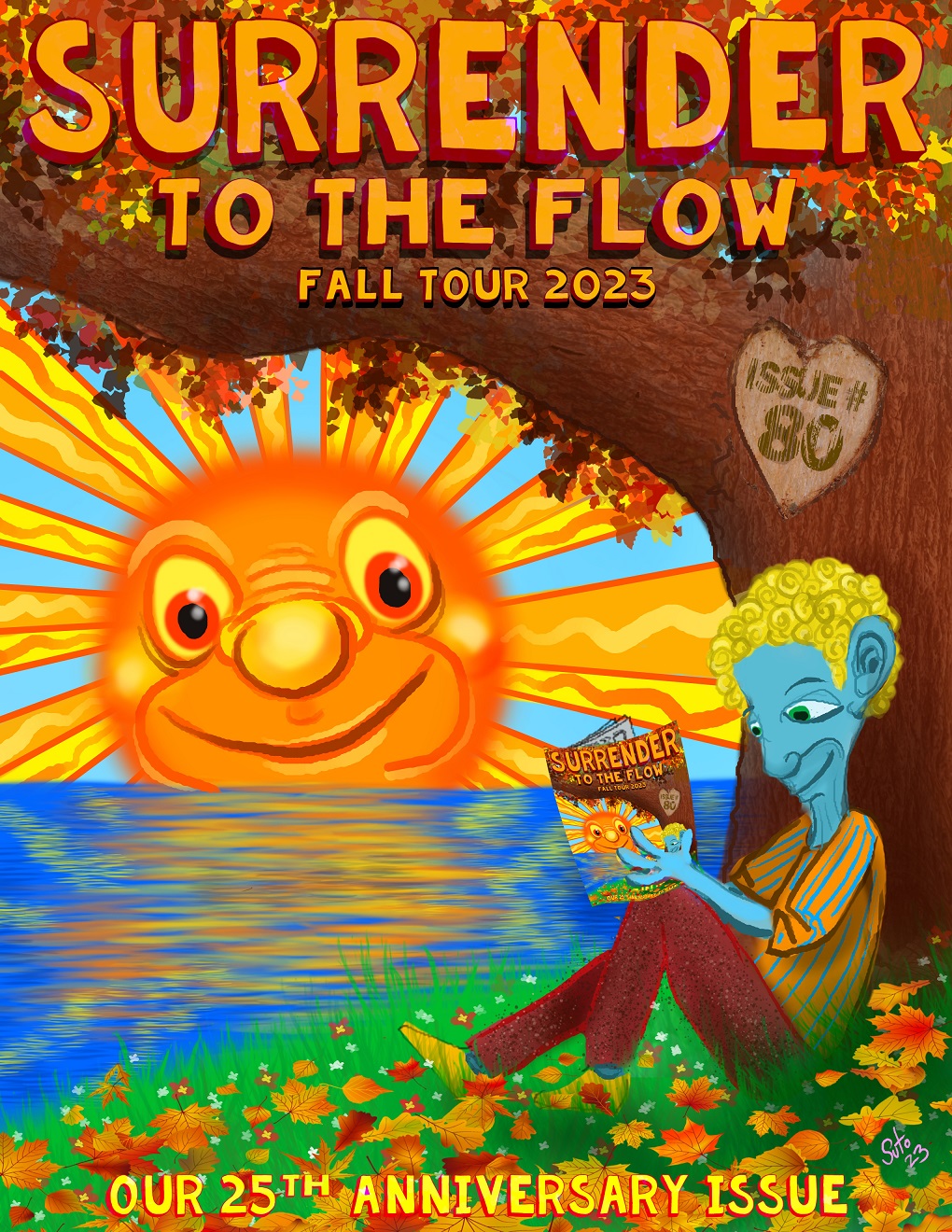
ON THE CONCEPTS OF IT AND THE HOSE: AN ABRIDGED SELECTION OF PHISH'S IMPROVISATIONS
[The current FAQ entry on this website for "Hose" is grossly in need of updating. The Jamming Types entry also should be modernized, if only because one can now link to the original RMP threads about it, and because while the entry somehow mentions "PornoFunk" it fails to mention the "PermaGroove" concept, which Drew Hitz coined upon seeing the 12/9/95 Albany "YEM" (by the way, Drew also coined "Fuckerpants" (aka "Prince Caspian") on RMP in fall 1997 (without an explanation), and I just popularized the term when I recapped the '97 NYE run on RMP).
As I solemnly reflect on my sucking at the Phish, I would like to thank those who have made this site what it is, especially users @SethAdam1 and @UCtweezer and @Bizarro_Jerry and @Lemuria and @ZZYZX and the members of the jamcharts teams over the years for their help curating the jam charts on this site, without which this collection would have been impossible for me to create, particularly while on my back with my right ankle elevated above my heart for 23+ hours a day (I have a few more weeks of this!). Thank you everyone who has contributed to the jam charts in the last 15 years, especially users and current/former jamchart team members @DogFacedBoy, @Westbrook, @n00b100, Rich, @cohron1, @deshpn, @ItsIce88 and @MShow96! Thanks are also due to those who worked on the jam charts published in The Phish Companion (aka the "legacy" charts), including Jeremy Goodwin, Jim Raras, Craig DeLucia, Herschel Gelman, Billy Rickards, Steve Paolini, Sean McPharlin, Jason Rose, Jeremy Welsh, Tim Wade, Syd Schwartz, Saul Wertheimer, Christian McKee, Erik Swain, Jesse Appelman, Scott Hershkowitz, Mike Preston, and Rob Kallick. (If you worked on a jam chart and I failed to mention you, PLEASE FORGIVE ME, but let me know so I can ADD YOUR NAME HERE!)
I would also like to thank the tapers for not only recording shows over the decades, but also SHARING YOUR RECORDINGS!
And, of course, THANK YOU RELISTEN! THANK YOU DANIEL SAEWITZ AND ALEC GORGE for your PRICELESS service to the improvisational rock community!
Although my primary motivation in analyzing the entirety of Phish history to create this post was to eventually bring the FAQ entries for "The Hose" and "IT" (and possibly "Jamming Types") up to date after getting Comments on the post from you, and with the assistance hopefully of other site volunteers (OR YOU??), it wasn't long before I realized I was undertaking this effort in the fortieth year of Phish's history. In honor and in acknowledgement of forty years of Phish shows, and for your amusement, this post contains photographs of sundry, material, and sometimes personal and very humiliating items and ephemera from my years as a fan. I include them here as but a small gesture of atonement for my sucking at Phish for so long.
The transcription of the NPR radio interview purportedly from spring 1994 (below) appears to be based on a recording of it that I either transcribed myself (it is in a very old TXT file on my pc) or copied from someone in the 1990's, but I cannot locate the recording in my tapes or in the RMP Google Groups archive (other than in my RMP post that includes this transcription). I say "purportedly" about the date because in this remarkable 1997 thread on RMP that I encourage you to read or at least skim about the concept of the "Hose" and "IT" and having a transcendent experience listening to music, an old friend of mine Aaron states in the thread (on April 10, 1997) that he recalls hearing this interview on NPR's Weekend Edition in his dorm room at college in fall 1994. Aaron is a brilliant dude and I have no reason to question his memory. Of course, I guess it's possible NPR re-broadcast the interview in fall 1994, as Hoist was released March 29, 1994, but I wish I had the date and recording to (re)confirm. See also this thread in September 1997, which also has some wonderful ideas from fans, and in which I explain in one of the posts in the thread why the concept of "hose" and "getting IT" aren't quite the same, as I also explain below. -charlie]
The concept of "the Hose" originated in a conversation that Trey had with Carlos Santana when Phish was opening for Santana on his tour in July 1992. In an NPR interview conducted in spring 1994 during the promotion of Hoist, Trey and Mike explained how they understood the concept:
Interviewer("Int"): I wondered how much you were all influenced by Frank Zappa?
Trey: Oh. Particularly myself and Fish, our drummer. I was heavily influenced. As a matter of fact, the two of us—(pause) I remember going and following him around for a week or so, at one point, back when he was still touring and alive. But I always liked any kind of improvised live music, be it Frank Zappa, or the Dead, or Jazz. And I think that's the One Love that we all shared. And—
.jpg)
WHY "IT"?
[This article was published in the newspaper distributed on the grounds of the IT Festival twenty years ago in early August 2003 courtesy of Dean Budnick of Relix and his team. I also wish to apologize to the ~87 of you who may have seen this post appear on the home page for a very brief time earlier today. I was planning for this to go "live" on the site Monday morning, but I wasn't paying attention to the publication date, and I managed to briefly publish it on the site earlier today in error. I regret the error. You did not imagine... ... ... it. -charlie]
Since IT was announced, fans began speculating about the meaning of IT. Some immediately thought that Stephen King's book of the same name, published in 1986, inspired IT, because the setting of that horror tale also takes place in Maine. Others thought that maybe the festival got its name because the band and its management often wondered whether they would do "it" again -- that is, put on another festival after the hiatus—and IT stuck. Whatever the meaning of "IT," Phish could not have picked a more ambiguous name for a festival. After all, our nation was recently inundated by marketing for a device originally known as "It," which was (is?) supposed to revolutionize human transportation. (Mike has already played bass on a "Segway Human Transporter" live-in-concert on more than one occasion.)
But what about the history of "IT" before IT became the name of Phish's 2003 festival? What is the (sur)real story behind IT in the improvisational rock community?
.jpg)
EVERY SUMMER TOUR SHOW RATED ON A FIVE STAR SCALE (OR HOW TO RATE PHISH SHOWS IN A RUTHLESSLY OFFENSIVE AND ALIENATING MANNER)
[The views expressed in this article—which are extreme and outrageous, and to be regarded as atrocious and utterly intolerable in a civilized community—are not necessarily shared by any of the volunteers who manage this site. You the reader agree to hold Phish.net and its volunteers harmless from any and all liability for the contents of this post. The opinions expressed in this post are those of its author alone, unless the author otherwise indicates or expressly disclaims such opinions, at any time.]
IT has been made plain in the “Comments” to my screed about Phish show ratings on this site that some of the views obtusely and abstrusely expressed therein created confusion and vitriol, arousing and inflaming the passions of the most ignorant and noobtarded of this site’s beloved user community. For this, I insincerely do not apologize. The blog post was at times deliberately and maliciously perverse, and often baffling, and while it did diminish what little credibility I may have had with many of you, this is your fault entirely, as you wasted your time reading it, and I should never have been esteemed by anyone at any time in the first place. You're welcome.
.jpg)
ON THE (UN)BEARABLE LIGHTNESS, AND DARKNESS, OF RATING PHISH SHOWS
[The views expressed in this article do not necessarily comport with the views of any of the many volunteers who help run this site and manage its content. The author of this post is also not in control of his faculties, and you the reader agree to hold Phish.Net harmless from any and all liability for this blog’s contents. If this article appears TOO LONG and you DON’T want to READ it: Trust show ratings at your peril, as there is no truth in them. The only truth is in you.]
IT is well-known that users can and do rate Phish shows on this site by awarding them one, two, three, four or five stars. A logged-in user simply views a setlist’s "permalink page"—for example, this beauty right here—and, behold! Beneath the setlist in the section headed “SHOW RATING,” you the user are invited to provide “Your rating:” of the show by clicking on one-to-five blank stars that fill-in the moment your mouse hovers over them. If you’ve already rated the show, one or more of the stars will be filled-in and not blank when you first view the section. And after you’ve rated a show, you can change the rating with ease, if you wish, by hovering a mouse over the stars and rating the show anew. The “Show Ratings” section also states the number of times the show has been rated by unique users and its “Overall” average rating out to three decimal places, with one point calculated per star. One of the greatest musical performances in the history of music by any group of musicians in recorded history, for example, is currently rated an average of 4.761 by 1400 users.
What is less well-known or even understood is how much Phish the Typical Fan Who Rates Shows on this site has actually heard, or seen. How many users of this site who rate shows only rate shows they’ve attended? How many users who rate shows on this site have heard every or nearly every circulating note of Phish—all shows in Phish history, the recordings of which stream on Relisten.net or Phish.in or LivePhish—and thus wield a judicious sense of what characteristics constitute an above, below, or “Average Typically Great” Phish show? A few hundred perhaps?
It is thus forgivable that some (perhaps you yourself) find this site’s “Show Ratings” to be at least hilariously if not outrageously unreliable, often so grossly inflated that it’s prudent to distrust and disregard them with the most extreme prejudice.
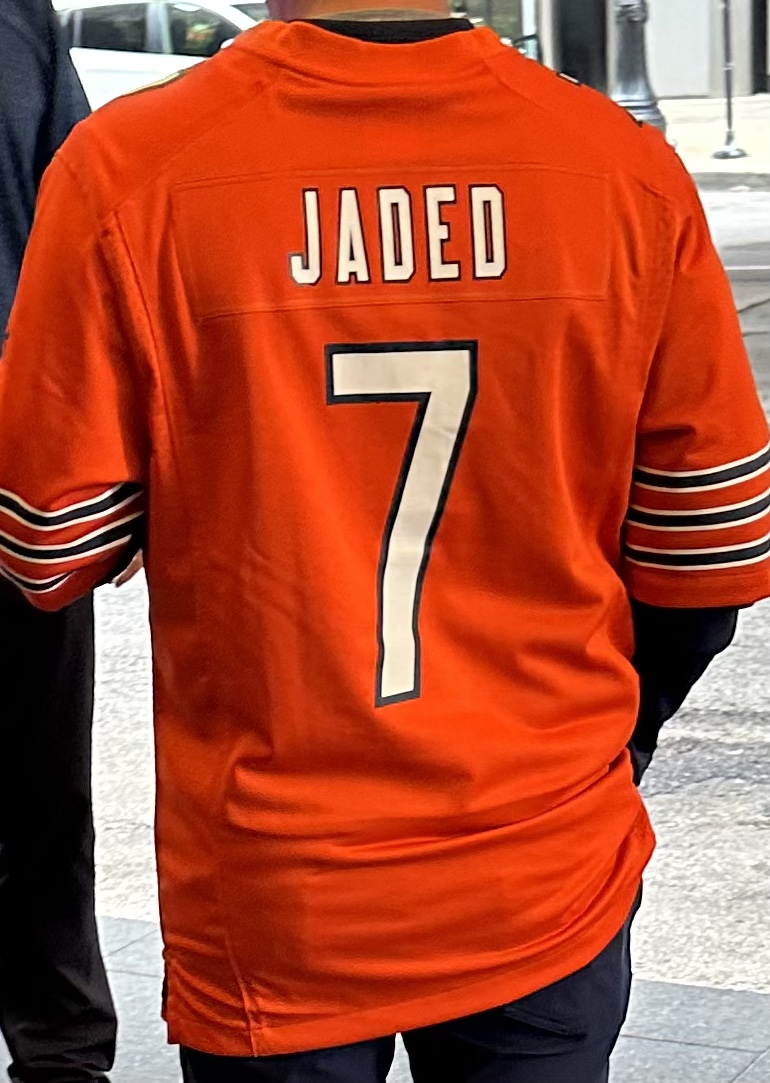
8TH RUNAWAY OPEN A SUCCESS
Thank you to the 100 golfers who came together on September 2 at Willis Case Golf Course in Denver in support of our mission. We’re still crunching numbers, but have already raised over $6,000 through the event to continue our support of music education programs across the country.

I've had a bad habit of posting results 9 months or so later, but this time... we've got tournament results, prize summaries, sponsor thanks, some photos of the event, and a hidden lyrics puzzle - all below the fold...
MOCKINGBIRD SUPPORTS LOH CENTENNIAL
The Mockingbird Foundation is all about music education, and the volunteers behind it adore concerts, so we love when we can support the combination of the two. We're proud to announce that we have donated $20,000 to the Lebanon Opera House in Lebanon, New Hampshire, to bring teachers-by-day and musicians-by-night The String Queens to the venue for a residency in April 2024 as part of the LOH's coming Centennial Celebration.
During this residency, The String Queens will not only put on a slate of shows for the community, but also host a youth education series to demonstrate how diverse string music can be and offer one-on-one lessons to participants. We'll share more about the series as the event draws closer, but to find out more information, visit the Lebanon Opera House's social media pages.
We are only able to achieve this through your continued support. If you haven't donated recently, we hope that you'll consider doing so - at mbird.org/donate or via the "donate" button at the bottom of any page on Phish.net or at the top right of any page at mbird.org.
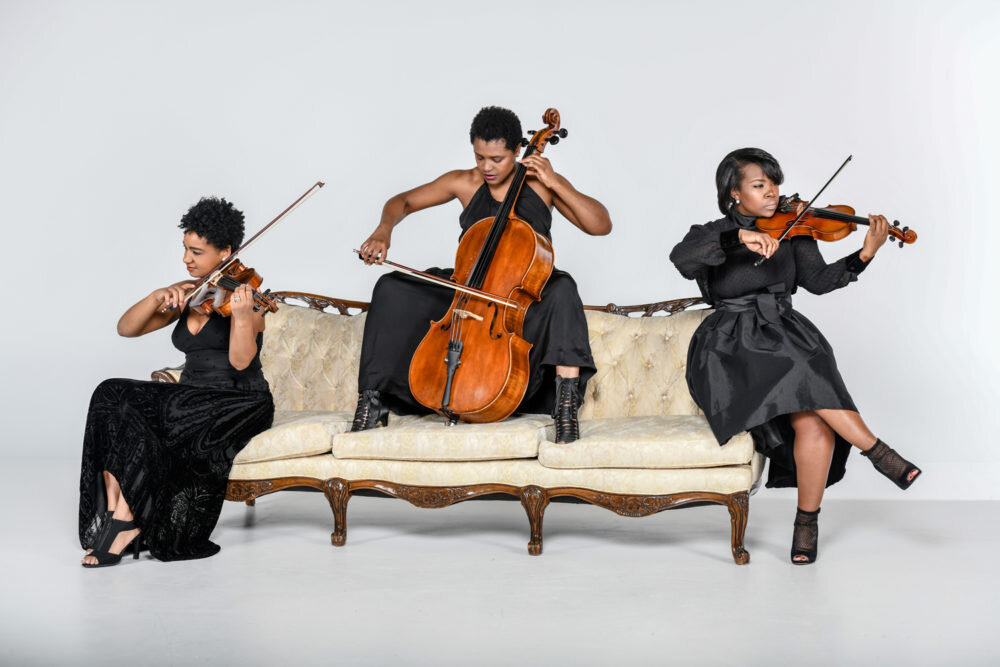
THE PARROT & THE MOCKINGBIRD
When Jimmy Buffett recorded Phish’s “Gumbo” 23 years ago, it was one of many incredibly generous things he did, to the surprise of some. Generous, because it was for the Mockingbird Foundation’s two-disc tribute album Sharin’ in the Groove, which continues to raise funds for music education through scores of streaming services (from Amazon to Spotify and beyond) to this day. Incredible, because he spent an entire week in an Atlanta studio with the full Coral Reefers band, all on his own dime, recording the one Phish song that mentions a parrot. (Jimmy also has his own song about gumbo, as well as a song about a lizard.) Surprising, because some in the “music industry” continue to be stupefied that he did it at all.
Jimmy was extremely charitable, helping to start three nonprofits serving different needs. But he was apparently known for declining charitable performance invitations. He did his own things, and enjoyed his own spaces, and he gave plenty through other means. But his performances were understood to be for Parrotheads, or perhaps for profit (at least up front), not directly for philanthropy. “How’d you get him?” many who would know have inquired. The short answer is, I just asked. The longer answer involves that Jimmy and his people were instrumental in the creation of the Mockingbird Foundation, in ways few know and appreciate, providing helping hands both before and after Jimmy recorded what became our track #2.
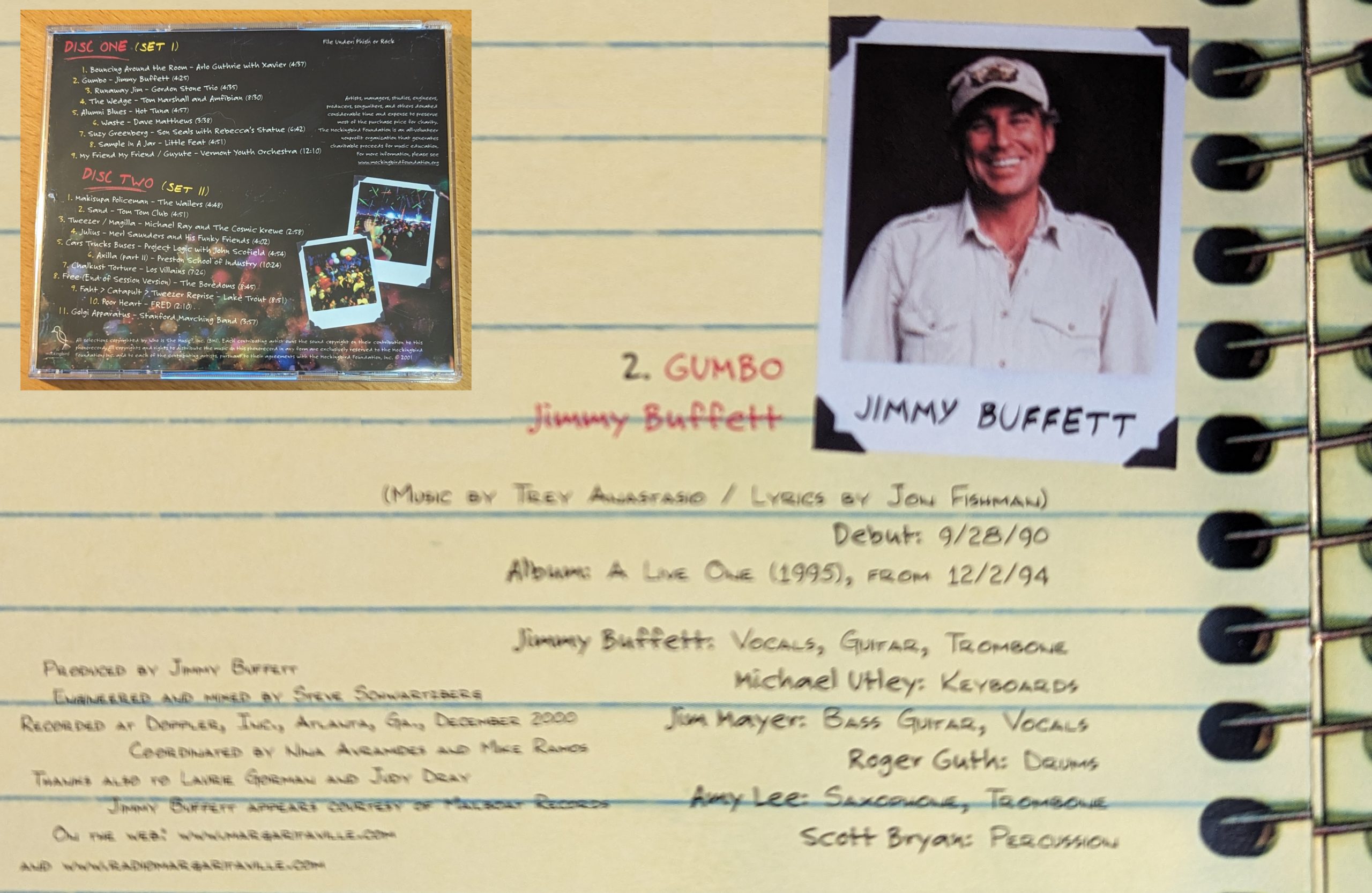
DICKS4 RECAP: SURRENDERING TO ONE LONG-ASS SET
[We'd like to thank Rachael Wesley for recapping last night’s show. Her debut (and very Phish-filled) memoir, SECOND SET CHANCES, is forthcoming (April 2025) through Vine Leaves Press. Follow her on IG rachael_wesley_writes or check out her website: rachaelwesley.com for writing and book updates. —Ed.]
Growing up, Sundays were never my favorite day of the week. I was raised in a secular Catholic household, which meant if my parents woke, sans alarm, in time to attend Mass, we would go. My brother and I almost always arose before Mom and Dad. We would tiptoe around the house like mice, turning on Rugrats at the lowest volume possible, whispering together, holding our breath every time we heard a noise, anticipating our parents rising. Any second, we would be summoned to dress for church.
This happened about 50% of the time. Whether we made it to Sacred Heart of Jesus or not, our afternoons always ended with family time and sauce (never gravy) at my Grandparents’. Sometimes, it felt like forever before the spaghetti was served.
Though I never learned to enjoy church, I discovered that if I just surrendered to the routine of that day, Mass would go by a lot quicker, and the pasta at Gram’s would arrive sooner rather than later.
It’s been decades since being forced to attend a Mass I had zero interest in, but as Matt, yesterday’s reviewer, so beautifully said, Phish IS Church, and I’ve been a willing member of this congregation for over twenty years. A Sunday show day includes many of the same elements of the Sundays of yore: church, family, and food, and, for good measure, throw in the lessons of my youth to remember to surrender to what the day throws at you.
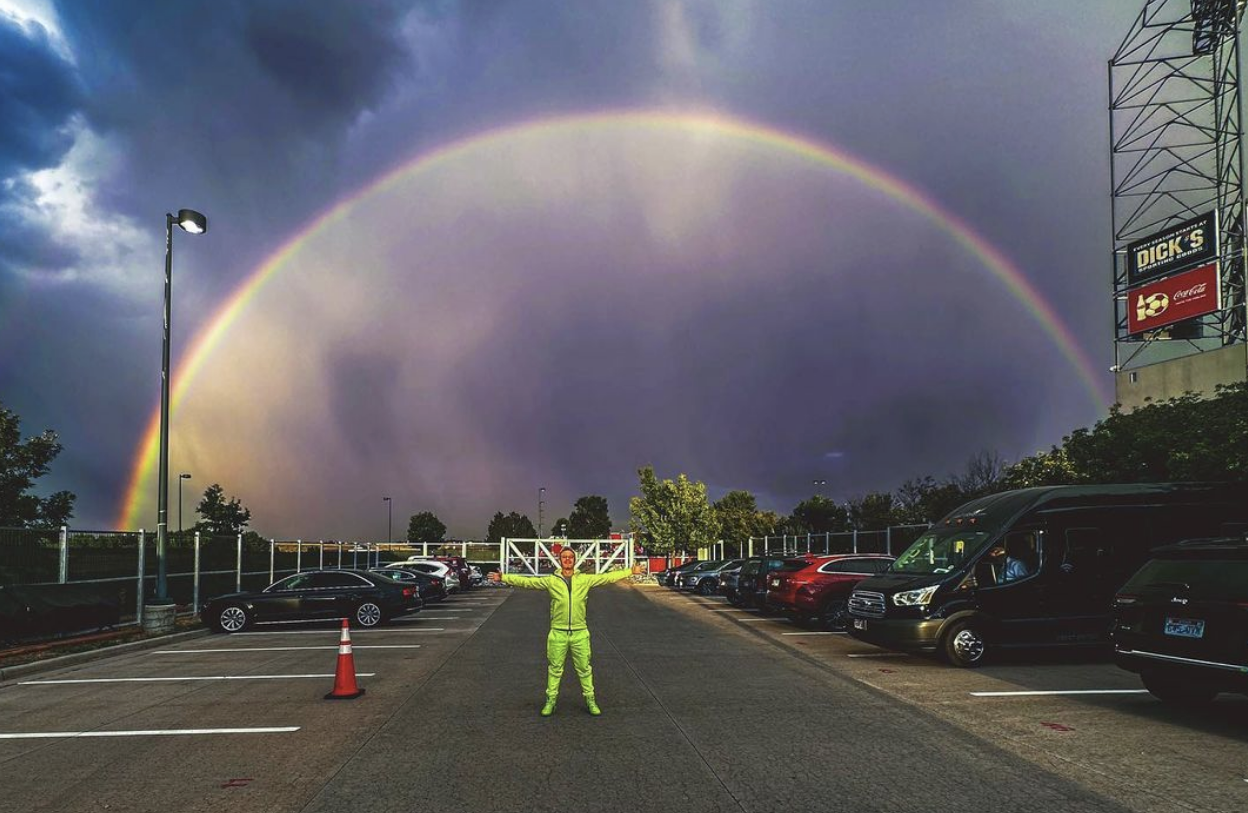
DICKS3 RECAP: BY-RUN LIKE AN ANTELOPE
[We'd like to thank Matt (@scissortail) for recapping last night's show. -Ed]
“Phish is church.”
I’ve been seeing Phish for a long time, and I’ve heard many people say some version of this over the years. I’ve said it plenty of times myself. It’s slightly difficult to articulate exactly what we mean by this phrase. We just feel it. We know it. The strange and mysterious alchemy of the music, the fellowship, the collective joy, the freedom, the release—it lifts up our hearts and enriches our souls. For many of us, it is nothing short of necessary.
The first time I saw Phish with my friend Byron was at the Woodlands Pavilion near Houston in 1999. I saw Phish with Byron dozens of times after that.
On Saturday morning I attended Byron’s funeral in our hometown of Edmond, Oklahoma. On Saturday evening I attended a Phish concert in Commerce City, Colorado. My wife and I, and many of our longtime Phish friends, decided that our Saturday should unfold this way for two reasons:
Because Byron would insist on it. And because Phish is church.
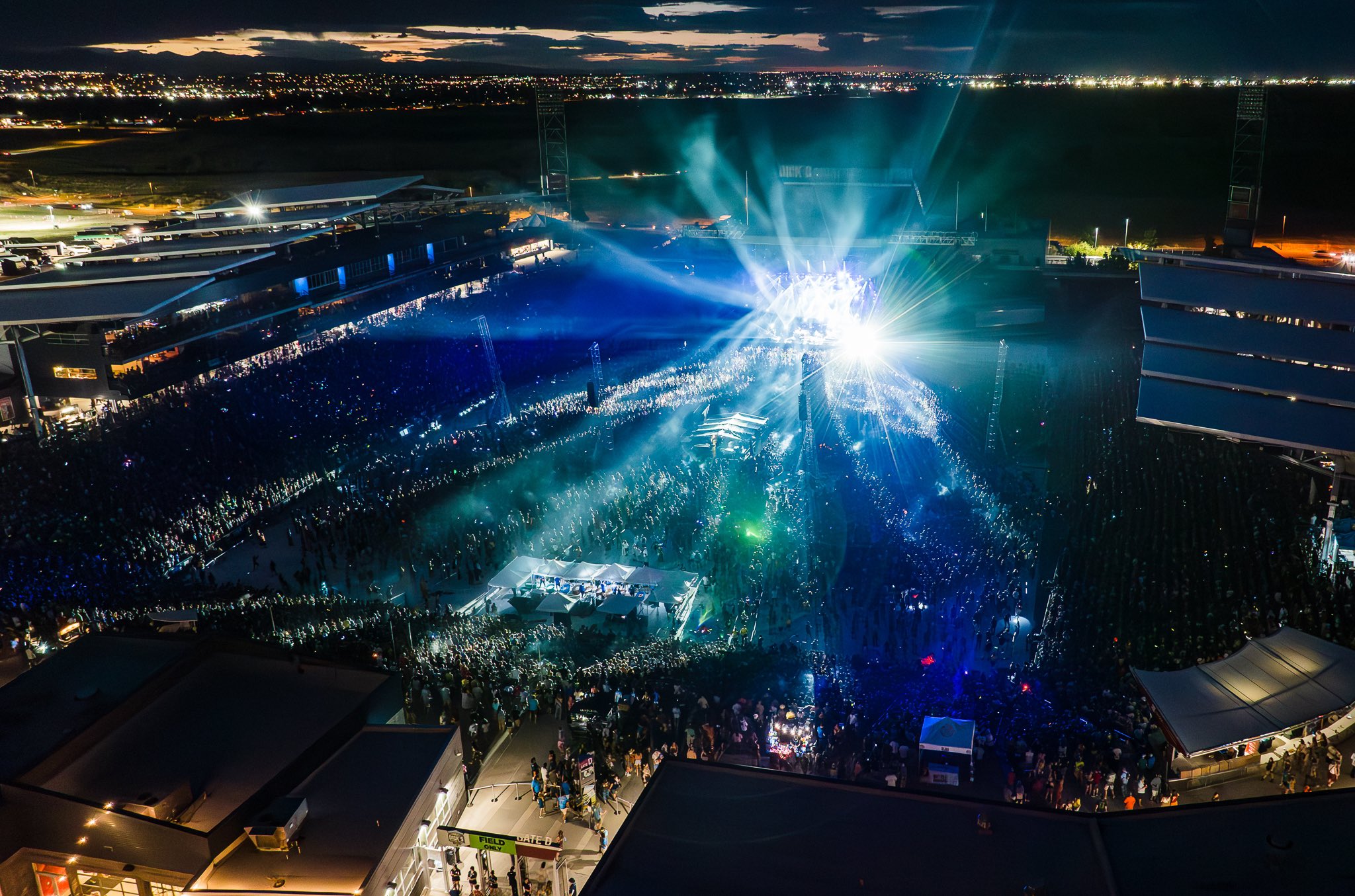
DICKS2 RECAP: A LOVE/HATE RELATIONSHIP
[We'd like to thank Michael Ayers for recapping last night's show. -Ed]
I have a love/hate relationship with Dicks. I think it has become the quintessential Phish experience. Even after the loss of camping in 2019, it’s hard to top the Dicks experience. The city is fantastic, the venue is fantastic, hell, even the cops are chill. It’s always a great way to end summer tour.
Dicks, however, does not reciprocate that affection. In 2016, a minor medical issue ruined what was otherwise a perfect show on N1. In 2019, a minor medical emergency was narrowly averted as I was able to get some rest and water before anything serious happened. Which brings us to N1 2022. Were any of you leaving the Thursday show Mike’s side and saw a dude sitting on the ground, surrounded by EMTs because he faceplanted into concrete? If you did, hey, that was me! Two broken teeth, a $1200 ambulance ride, a lost Montreal Expos hat (one of those really nice fitted ones, too) and Dicks 2022 was over before it really got started.
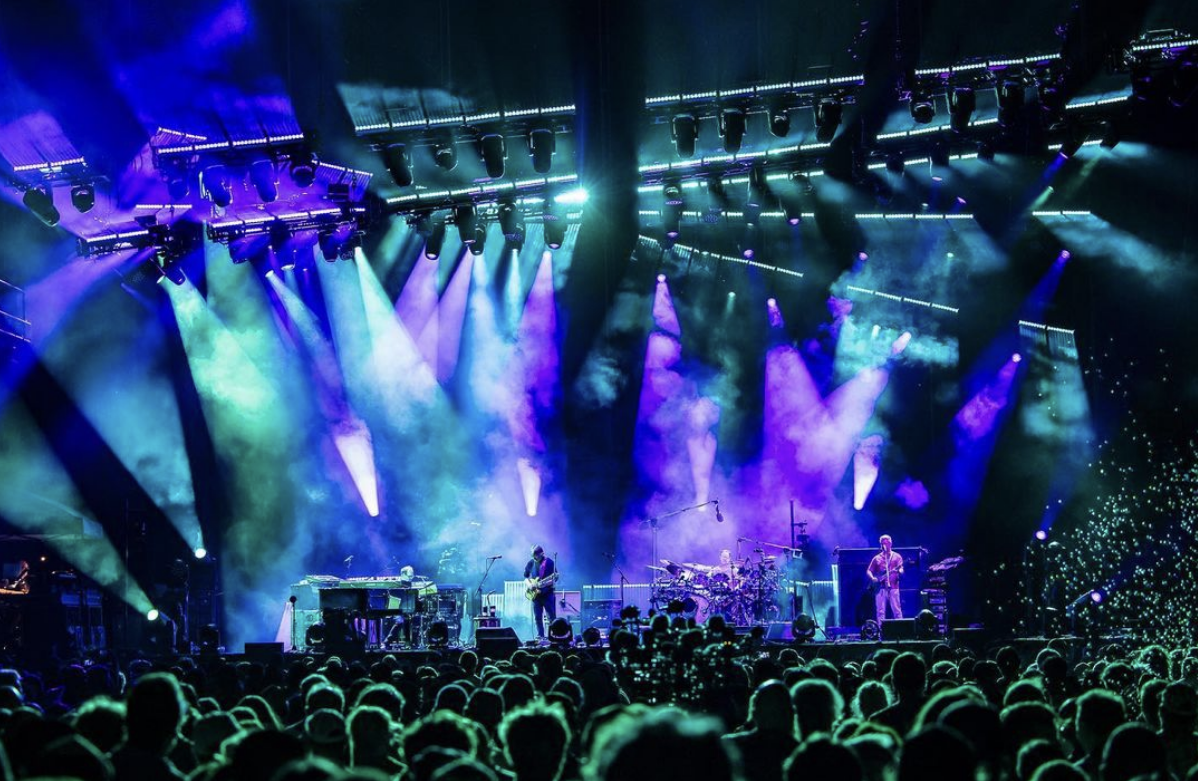
DICKS1 RECAP: THIS IS WHAT SPACE SMELLS LIKE
[We'd like to thank Lindsay Hope for recapping last night's show (@lindsayhopecreative on IG or on the web.)]
If there’s anything circling around the sun for decades following this band has taught me, it’s that you have the best shows when you have no expectations. When you live in the moment. And when you focus on feeling so damn lucky to be a part of something much bigger than yourself. Because even if you think you have it figured out — these guys find a way to surprise you. And when you let go of chasing songs or building dream setlists — the magic happens. For me, 8/31/2023 was that kind of night.
For the 35th rendition of Dicks, Phish took the crowd on an interstellar improvisational adventure. There was no shortage of experimentation — from the explosive start with a 19-minute show opening “Carini” (dedicated to Frenchie, the naked dude who inspired NYE 2022’s gag and a fellow Coloradoan I happen to have personally known… RIP) to a Tweezer that’s honestly hard to put into words. All night, it was easy to get lost in the ambient jamming under the full moon. And just when the flow seemed to go off the rails, the band brought the crowd back down to Earth to remind us why we were all here in the first place — to have a one-of-a-kind experience unlike anything we’ve ever heard before.
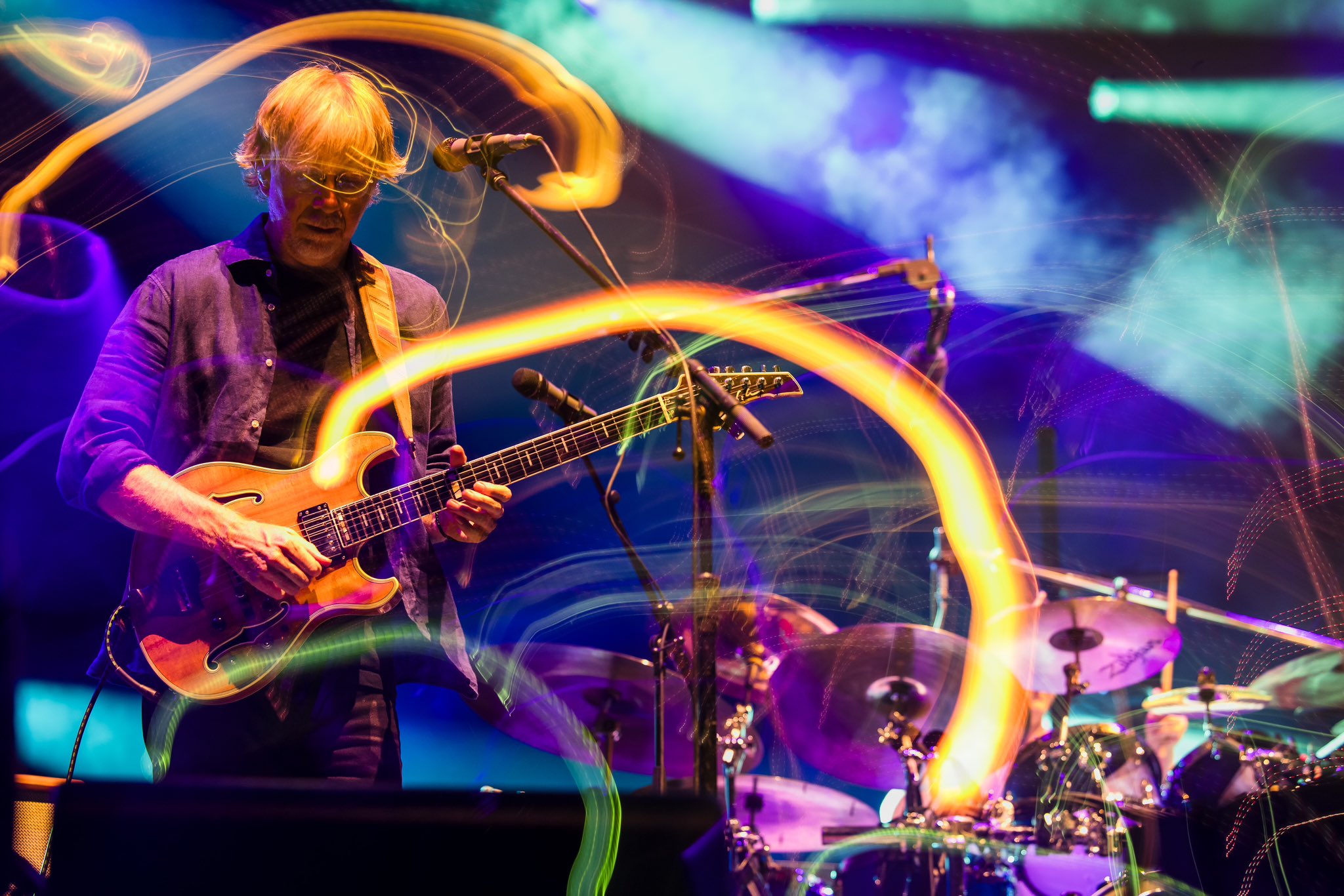
SURRENDER TO THE FLOW #79: COLORADO 2023
[Courtesy of Christy Articola. -Ed.]
It's time for another issue of Surrender to the Flow! This issue is STTF #79: Colorado 2023, and we are so excited to offer it to you free or by donation as always. This issue is full of good stuff! It includes information about this year's Dick's Run 2023, e.g., where to eat, things to do, and things you need to know about. In this issue there are also reviews of most of Summer Tour 2023, and articles on a variety of interesting topics that we know you'll just love, e.g., articles about FOUR non-profits doing fantastic work, the Phish Studies Conference 2.0, and the status of the We've Got It Simple documentary.
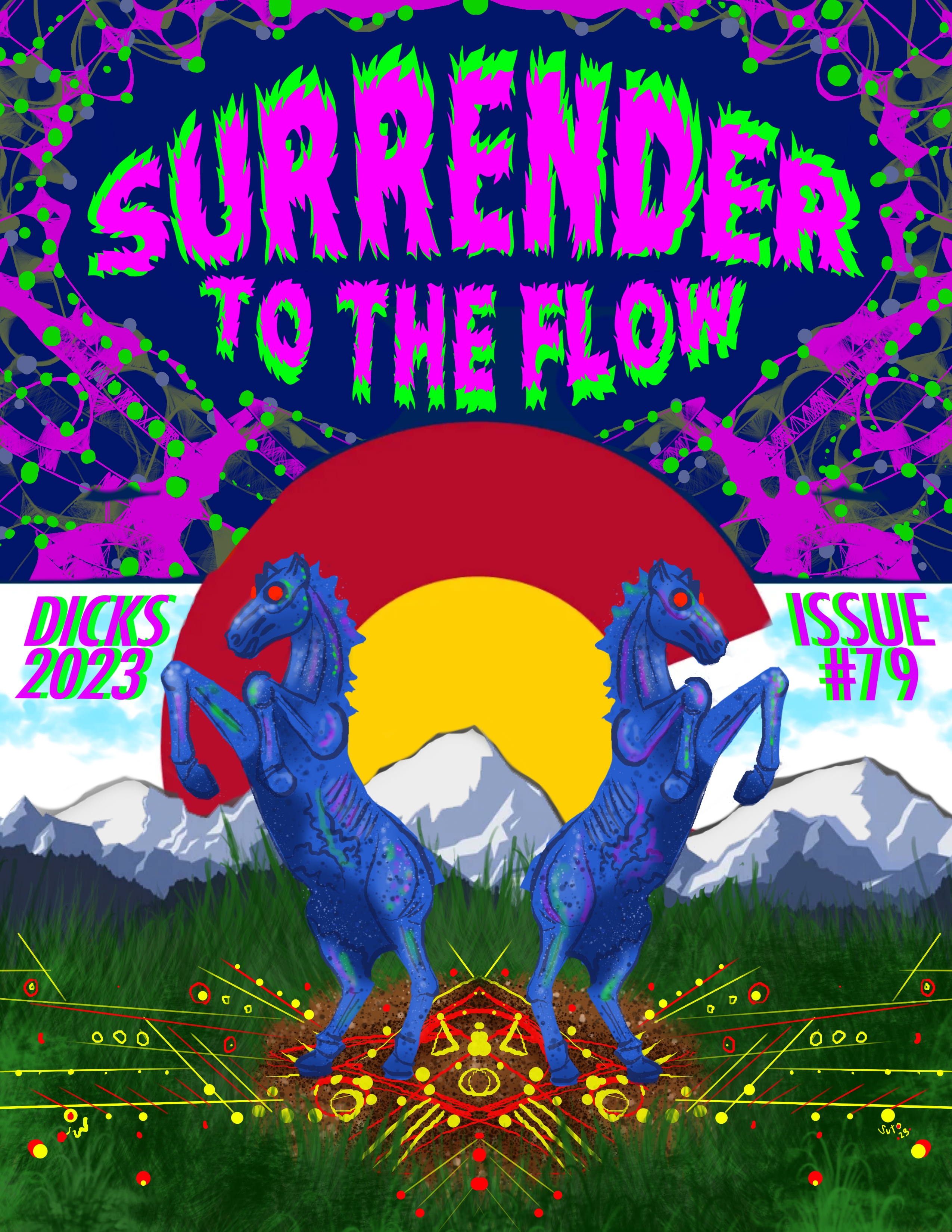
PHISH STUDIES CONFERENCE CALL FOR PROPOSALS RELEASED: SUBMISSIONS DUE DECEMBER 15
The 2024 Phish Studies Conference, which will be hosted at Oregon State University on May 17-19, is soliciting proposals for academic presentations, art exhibits, and musical performances. Scholarly presentations may come from any academic discipline and methodological approach and can fall into three categories: individual 20-minute presentations, 90-minute panel, roundtable, or workshop proposals (three presenters minimum), or 10-minute student scholar papers.
The conference also seeks proposals for artwork to be featured in conference venue hallways and meeting rooms. Additionally, the organizers invite proposals from musicians and bands to play during nightly social events. Performers and bands do not necessarily have to play the music of Phish but should have some relevance and connection to the band or their music.
Proposals for all categories are due no later than December 15, 2023. For more information, see the Call for Proposals on the conference webpage.
SPAC2 RECAP: YOU GUYS!
[We'd like to thank Jennifer Moore (Twitter: @rowjenny) for recapping last night's show. -Ed.]
Everyone knows what happened last night, so part of me feels like this entire review should just be WOWZA!!!!! Nothing I can write here can encapsulate the musical magic of this very special Saturday evening in Saratoga.
Last night, Phish played their second performance of the weekend at Saratoga Performing Arts Center. Both shows were benefit shows to raise money to help people in Vermont and Upstate New York who were affected by catastrophic flooding in July. Phish and their charity organization, the Waterwheel Foundation, put these special shows together in a matter of weeks, complete with two acoustic preshow performances by Page and Trey.
We were fortunate to score pit tickets for the Saturday SPAC show. The SPAC pit is small (capacity 150), and in the dozens of times I have been to a concert at SPAC, I have only been in the pit a few times before. We entered the early entry lottery and scored numbers 3 and 4!!!!!!!
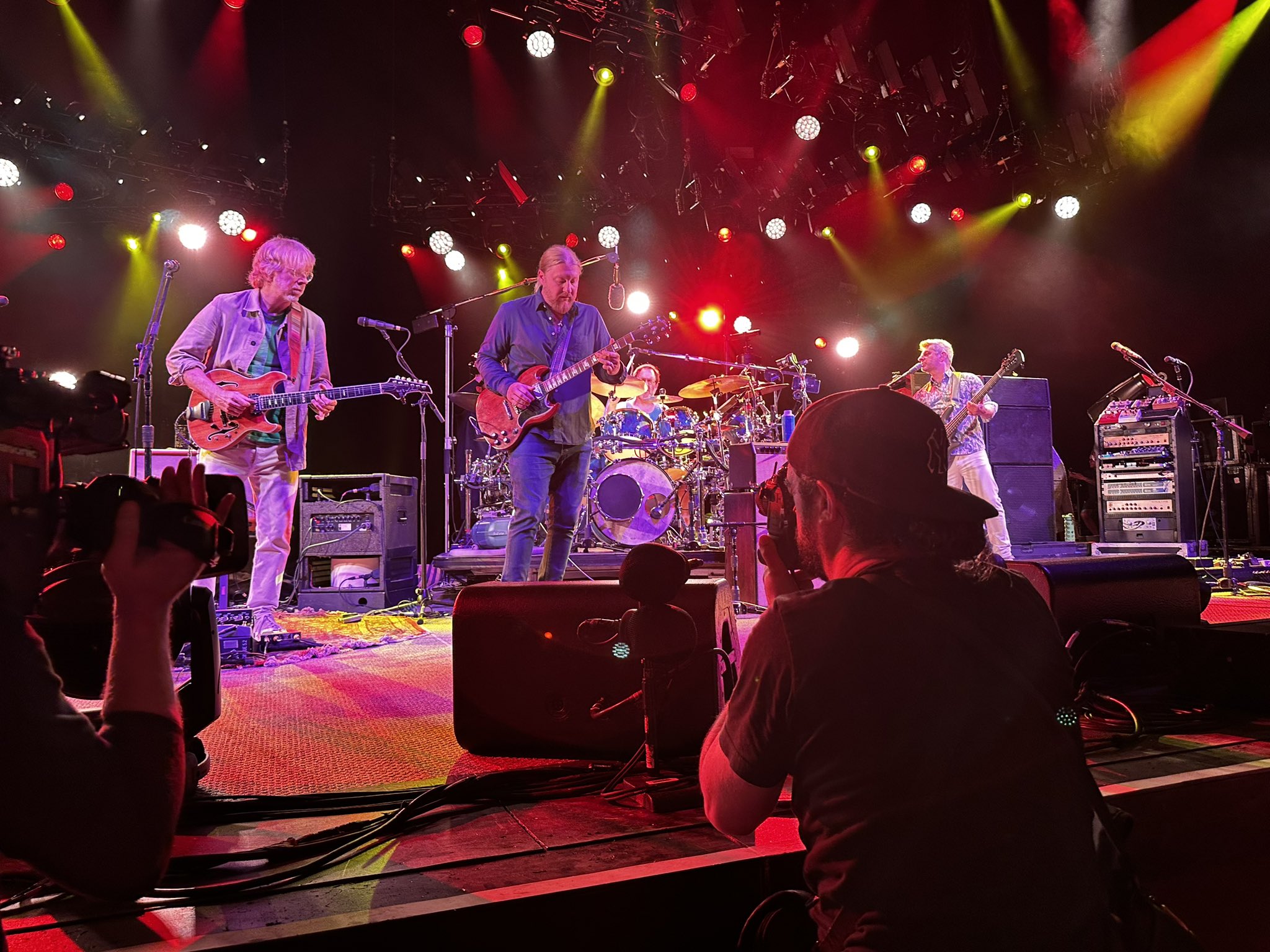

.jpg)
 The Mockingbird Foundation
The Mockingbird Foundation